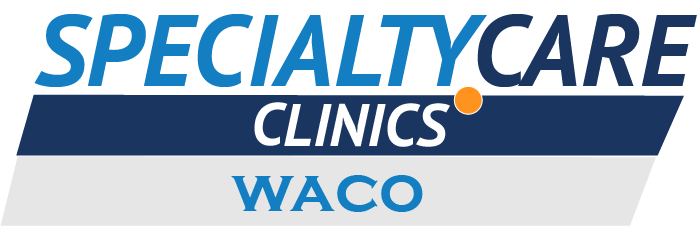Sports play a vital role in maintaining a healthy lifestyle, improving fitness, and building confidence. However, with athletic performance also comes the risk of injuries, muscle strains, or physical stress that can limit one’s ability to stay active. That’s where sports medicine comes into play. Whether you’re a professional athlete, a fitness enthusiast, or someone who simply enjoys staying active, sports medicine services are designed to help with both recovery and performance. In this article, we’ll explore what is sports medicine, the role of a sports medicine physician, and the various services offered to enhance recovery and performance.

What is Sports Medicine?
Many people wonder, “what is sports medicine?” Simply put, sports medicine is a branch of healthcare that focuses on the prevention, diagnosis, treatment, and rehabilitation of injuries related to exercise and sports activities. Unlike general healthcare, sport medicine emphasizes keeping patients active and helping them return to their routines as quickly and safely as possible.
A sports medicine doctor or sports medicine physician is trained in both medical and musculoskeletal care, making them uniquely qualified to address injuries like sprains, fractures, tendonitis, and joint pain. Additionally, they provide guidance on nutrition, conditioning, and injury prevention to improve athletic performance.
Key Sports Medicine Services for Recovery
When it comes to recovery, sports medicine offers comprehensive services that help athletes and active individuals heal faster while minimizing the risk of long-term damage.
1. Injury Diagnosis & Treatment
One of the core services of orthopedic sports medicine is the accurate diagnosis of injuries. Whether it’s a torn ligament, muscle strain, or stress fracture, sports medicine physicians use advanced imaging and diagnostic tools to identify the problem and create a personalized treatment plan.
2. Physical Therapy & Rehabilitation
Rehabilitation is essential after an injury, surgery, or prolonged inactivity. Sports medicine doctors work closely with physical therapists to design rehabilitation programs that restore strength, flexibility, and mobility. These programs help athletes regain full functionality and return to their sport safely.
3. Non-Surgical Treatments
Many conditions can be managed without surgery. Treatments such as platelet-rich plasma (PRP) therapy, corticosteroid injections, and regenerative medicine are part of modern orthopedic sports medicine practices. These therapies promote healing, reduce inflammation, and accelerate recovery.
4. Post-Injury Recovery Programs
Structured recovery programs are tailored to the type of sport and injury. For example, a runner recovering from shin splints will have a different rehabilitation plan compared to a football player recovering from a shoulder injury. These programs ensure a safe and efficient return to activity.
Sports Medicine Services for Performance
Sports medicine is not only about treating injuries—it also focuses on maximizing performance.
1. Performance Optimization
Sports medicine physicians help athletes improve strength, endurance, and flexibility. They create personalized training programs that enhance performance while reducing the risk of injury.
2. Nutritional Counseling
Nutrition plays a critical role in athletic performance and recovery. Sports in medicine emphasizes proper hydration, diet planning, and supplementation to fuel the body for optimal results.
3. Injury Prevention Programs
Preventive care is just as important as treatment. Sports medicine specialists teach proper warm-up techniques, stretching routines, and conditioning exercises that lower the risk of sports-related injuries.
4. Mental Health & Sports Psychology
Mental resilience is a key aspect of athletic success. Sports medicine services often include guidance on stress management, focus, and motivation to keep athletes mentally strong.
The Role of Orthopedic Sports Medicine
Orthopedic sports medicine is a specialized branch that deals with musculoskeletal injuries—bones, joints, tendons, and ligaments. Orthopedic sports medicine doctors treat injuries like ACL tears, rotator cuff injuries, and cartilage damage. They often collaborate with physical therapists and trainers to ensure holistic care.
These specialists also perform surgical procedures when necessary, such as arthroscopic surgery, to repair severe injuries. Their goal is not only to treat injuries but also to restore athletes to peak performance.
Why Choose a Sports Medicine Physician?
If you’re an athlete or someone leading an active lifestyle, consulting a sports medicine doctor provides numerous benefits. These physicians understand the demands of sports and tailor treatments to your specific needs. They don’t just treat the injury—they focus on helping you recover fully, prevent future injuries, and optimize your performance.
Conclusion
Sports medicine is more than just treating injuries—it’s about empowering athletes and active individuals to recover faster, perform better, and maintain long-term health. With services ranging from injury treatment and rehabilitation to performance optimization and preventive care, sports in medicine continues to play a vital role in healthcare. Consulting a sports medicine physician or orthopedic sports medicine specialist ensures that you receive expert care tailored to your goals, whether that’s competing at a high level or simply staying active and healthy.
Frequently Asked Questions (FAQs)
Q1: What is sports medicine, and who needs it?
Sports medicine is a specialized field that deals with the prevention, treatment, and rehabilitation of sports-related injuries. It’s not just for professional athletes—anyone who exercises or leads an active lifestyle can benefit.
Q2: What does a sports medicine physician do?
A sports medicine physician diagnoses injuries, designs treatment plans, provides rehabilitation, and offers preventive strategies to help individuals stay active and perform at their best.
Q3: How is orthopedic sports medicine different?
Orthopedic sports medicine focuses specifically on musculoskeletal injuries, such as fractures, ligament tears, and joint problems. Orthopedic specialists often perform surgeries if non-surgical treatments aren’t sufficient.
Q4: Can sports medicine help with performance enhancement?
Yes. Sports medicine services include nutrition counseling, conditioning programs, and injury-prevention strategies to help athletes improve strength, endurance, and overall performance.
Q5: Do I need a referral to see a sports medicine doctor?
In most cases, you can directly book an appointment with a sports medicine physician. However, some insurance plans may require a referral from your primary care doctor.
From injury treatment to peak performance, our Sports Medicine specialists are here for you. Visit our website https://sccwaco.com/services-and-specialities/sports-medicine/ and call us at (254) 308-7868 now!
